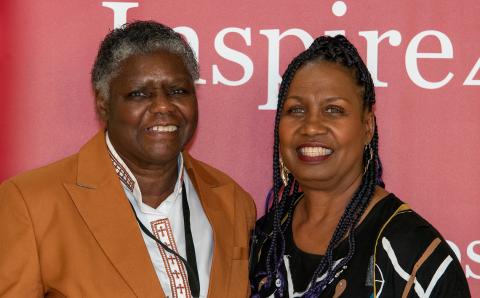As part of my work at Calvin Theological Seminary, I have the opportunity to hear from pastors who minister in a wide variety of contexts and denominations. Mostly this happens in the peer learning groups we convene. In June 2021 we met with two dozen pastors who have been leaders of our peer learning groups for the past three to four years. What they told us about ministry during the recent COVID-19 pandemic was, to put it mildly, startling.
Several pastors had left their congregations over tensions related to COVID. Several others were hanging on by their fingernails. Those who fared a bit better and did not leave their congregations nevertheless reported stress levels seldom if ever before experienced in their many years of ministry.
But as striking as anything was the wide-eyed wonder with which most of the pastors reported one particular aspect of their pandemic interactions with their congregations: a complete disbelief in what their pastors told them. These were pastors who had served and loved and ministered to people in these places for a long time. One pastor who moved on from his congregation had been their pastor for 18 years. Another had been in a congregation for 12 years, and still another eight years.
Yet when they assured their congregations that the pandemic was real, that masks were saving lives, that social distancing was necessary, and that it was not safe to gather in person for worship for a time, people accused them of lying. The most charitable would assert their pastor was simply misinformed. The less charitable seemed to believe their pastor was a willing part of some vast conspiracy to deceive the masses.
The pastors who had served for many years in these congregations were dumbfounded. One pastor said she told her people directly, “After all these years together, do you really believe I would lie to you?” But some did. Unsurprisingly, this cut deeply into their souls. The wounds inflicted will take years to heal, and some might never fully recover.
These stories reminded me of John 14, in which Jesus says to Philip and the other disciples, “Have I been with you so long and still you do not know me?” I believe it would be correct to read that line with a wounded inflection in Jesus’ voice.
The COVID-19 pandemic is most certainly not the first time in church history when parishioners disagreed with a pastor on a given point. Surely there is more than enough room in Christ’s church for people to disagree with a pastor’s take on an issue. But much of what has happened to too many pastors these past two years feels different, more significant, perhaps even dire.
The information age has led to an explosion of sources of information. A lot of it is sound. A good bit of it is not. But somehow, some less credible sources of information have become more important to people than longtime pastors. “And still you do not know me?” these pastors have plaintively wanted to say to the sheep of their pasture.
Pastors are not perfect. We all make mistakes, and when we do, it’s on us to apologize. But what my fellow pastors have reported points to troubled waters in the church for potentially a long while to come. I don’t know how we can come back together and rebuild trust, but without a doubt, doing that is going to remain high on the list of ecclesiastical and pastoral priorities in the coming times.
Editor’s Note: The author adapted this article from a longer post that originally appeared on the Reformed Journal blog “The Twelve.”
Discussion Questions
- When was the last time you strongly disagreed with your pastor? What did you do about it? What was the outcome?
- Do you agree that what the author is describing is a problem in the church right now? Why or why not?
- What are some ways we can check if information we get from the internet/social media is reliable and accurate?
- How do you think we can maintain, or in some cases rebuild, trust between pastors and their congregations?
About the Author
Rev. Scott Hoezee is director of the Center for Excellence in Preaching, Calvin Theological Seminary, Grand Rapids, Mich. He is the author of several books, including Grace Through Every Generation, an overview of the CRC’s history, particularly the past 50 years, as well as a peek ahead (available from Faith Alive: www.FaithAliveResources.org, 1-800-333-8300).








